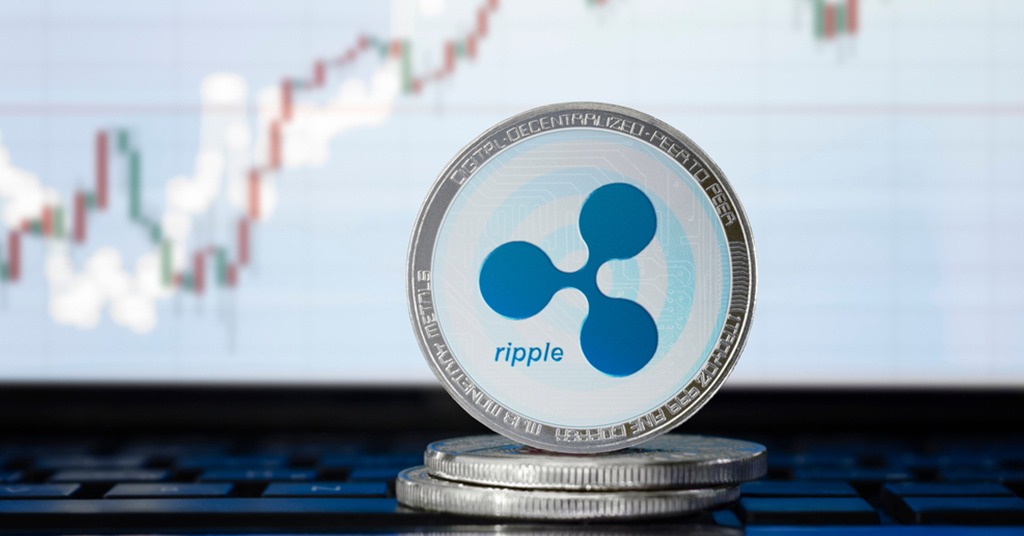We’ve gathered some expert opinions on the possible outcomes of the case and its implications for XRP

SEC lawsuit against Ripple: analysis and forecast. Source: shutterstock.com
It seems that someone in Ripple Labs has been very naughty this year since instead of Christmas presents the company’s executives got a lawsuit from the SEC right before the holiday season. All jokes aside, the move of the United States Securities and Exchange Commission has already brought a lot of damage to the third-largest cryptocurrency in the world and is sending ripples across the whole industry.
Timeline
First things first, let’s take a look at the sequence of events that brought such turmoil into the crypto industry.
Dec. 21, 2020 – Ripple announced it was about to be sued by the SEC. The company denied XRP being a security, noting that Singapore, Switzerland, and Japan have already declined to treat Ripple’s cryptocurrency as a security.
Dec. 22, 2020 – SEC filed an action against Ripple Labs Inc. and two of its executives, alleging that they raised over $1.3B through an unregistered, ongoing digital asset securities offering.
Dec. 23, 2020 – small exchanges like OSL, Beaxy, and CrossTower halted or stopped trading XRP. Its price fell 41% on Binance.
Dec. 28, 2020 – Coinbase announced it made the decision to suspend the XRP trading pairs on the platform. Some kinds of trades have become restricted already, and the full suspension will take place on Jan. 19, 2021.
Crypto.com, OKCoin, Wirex, and Ziglu followed the leading exchange and delisted XRP.
Dec. 29, 2020 – XRP dropped 31%, losing 75% in value. The price started falling since the lawsuit news and regained only a little by the end of the year.
Dec. 30, 2020 – the first pretrial conference has been set for Feb. 22, 2021. It will occur via video call.
Binance, the world’s largest cryptocurrency exchange by volume, announced that it will also delist XRP. All trading and deposits will be suspended as of Jan. 13, 2021.
Jan. 1, 2021 – XRP holders filed a petition for a writ against the acting chairman of SEC, Elad Roisman in the U.S. District Court of Rhode Island. The petition alleges that the SEC failed to protect investor interests’ by declaring XRP security.
Analysis
The SEC has recently taken on a major campaign to regulate the rising market dealing with crypto assets. After thorough scrutiny of the two most valuable cryptocurrencies — Bitcoin and Ethereum, the SEC has ruled that those are not securities, being fully decentralized with no person or company in control of them.
However, the third biggest crypto by market cap may be questionable in terms of the so-called Howey test, which was created by a 1946 Supreme Court case. According to the SEC’s arguments, XRP sales qualify as “investment contracts”. The Commission believes Ripple raised money through the digital coin offering to develop its business.
The most obvious difference between XRP and both Bitcoin and Ethereum, which the SEC treats as digital currencies, is the way they are created and distributed. Namely, XRP doesn’t require mining or any proof-of-stake / proof-of-work consensus. The whole 100 billion pool of tokens was released by Ripple and half of it is held in the company’s escrow account.
Moreover, Ripple itself owns about 6.4 billion XRP, with Garlinghouse and Larsen (two executives mentioned in the SEC suit) having large portions of the platform’s native crypto. Hence, the whole distribution process can’t be called decentralized.
The Ripple’s objections to the 71-page complaint drafted by SEC were laid out in the Wells Submission Summary.
Ripple CEO Brad Garlinghouse called the legal suit “an attack on the entire crypto industry and American innovation.” The company’s representatives think the strange lawsuit timing may be an effort to catch the last train under Trump’s administration which is quite hostile to the crypto community. Ripple even considered moving its headquarters outside of the USA in search of more favorable regulatory frameworks, naming London, Switzerland, Singapore, Japan, and the UAE as potential locations.
However, some experts don’t believe the company would ever need to relocate. For instance, Chris Giancarlo, former chairman of the Commodity Futures Trading Commission, argues that XRP doesn’t satisfy all the crucial points of the Howey test. That means, despite many similarities with bonds and stocks, this crypto is more of a currency. According to Giancarlo and his colleague Conrad Bahlke, the lack of mining does not fundamentally change how XRP is utilized or how securities laws should be applied. At the same time, Giancarlo & Co are actually linked to Ripple so they can’t be called impartial experts.
Meanwhile, another former CFTC chairman Gary Gensler said Ripple “sure seems like a common enterprise” and thus it could be operating outside of the law like thousands of other cryptocurrency projects. The current CFTC chairman Heath Tarbert made no official statements about XRP, calling its status “unclear”. The last year’s analysis prepared by the Medium team also concluded that the SEC can fairly classify XRP as a security.
Nevertheless, Michael Didiuk who is a former employee of the SEC agrees XRP is not a security, stating that the coin would continue to exist and function without Ripple. As we can see, some of the Howey test criteria may be interpreted differently when applied to Ripple’s case. Whatever the pro and con arguments are, the final say will depend solely on the court.
Garlinghouse, as a defendant, also brings out the previous rulings on the matter noting the controversies. For instance, the Justice Department and the Treasury’s FinCEN already determined that XRP is a virtual currency in 2015. Moreover, the SEC itself has permitted XRP to function as a currency for many years.
The last fact is exactly what has triggered a negative reaction of the XRP holders. The petitioners argued that declaring the token a security seven years after the first distribution calls into question the SEC’s proper functioning and expertise.
Forecasts and implications
Whatever the outcome, this lawsuit may become iconic for future legal disputes concerning the nature of cryptocurrencies.
It’s easy to notice the laws that regulate crypto assets are a bit outdated and unclear. In addition, the Howey test lays out only general guidelines that aren’t specifically tailored to cryptocurrencies or the modern financial landscape. After all, the original case dealt with planting and selling oranges while today we deal with much more complex decentralized ledgers and digital payments. Therefore, the Ripple legal proceedings may create a new precedent.
If XRP will ultimately be defined as a security, it’s “possible that subsequent entrepreneurs in the space will prefer a proof-of-work system to establish trust, thereby minimizing regulatory hassles”, as noted by Arjun Govind from Medium. In this case, shunning of non-proof-of-work network architectures could increase the energy intensity of future distributed ledgers and greatly limit innovative solutions.
Furthermore, new companies would find it hard to access the crypto space. As you may already know, Telegram had already given up on its crypto project after a long-lasting conflict with SEC. Facebook, on the other hand, is still making plans to launch its stablecoin although at a much narrower scale than previously planned.
The evidence shows there’s a strong need to unify international laws regarding crypto. As we can see, views of the US often differ from those held by other major countries of the world. Yet, cryptocurrencies are not local fiats and they require a uniform approach, especially, considering the rising demand for crypto assets in 2020.
As for Ripple Lab’s future, it seems obscure no matter the outcome of the case. Both its profits and the token’s price have drastically fallen. As Business Insider noted that almost all of Ripple’s value as an enterprise comes from being the creator and majority holder of XRP.
According to the legal firm Anderson Kill, losing the lawsuit would trigger enforcement action by the SEC, potentially bringing huge fines and even an order to stop selling XRP.
Therefore, Phil Liu, the chief legal officer at Arca, thinks Ripple may not survive the next year.
Although Liu’s forecasts for the XRP future are also gloomy, Michael Arrington, the founder of TechCrunch, stresses that the SEC lawsuit is against Ripple, not the XRP token.
SEE ALSO:









